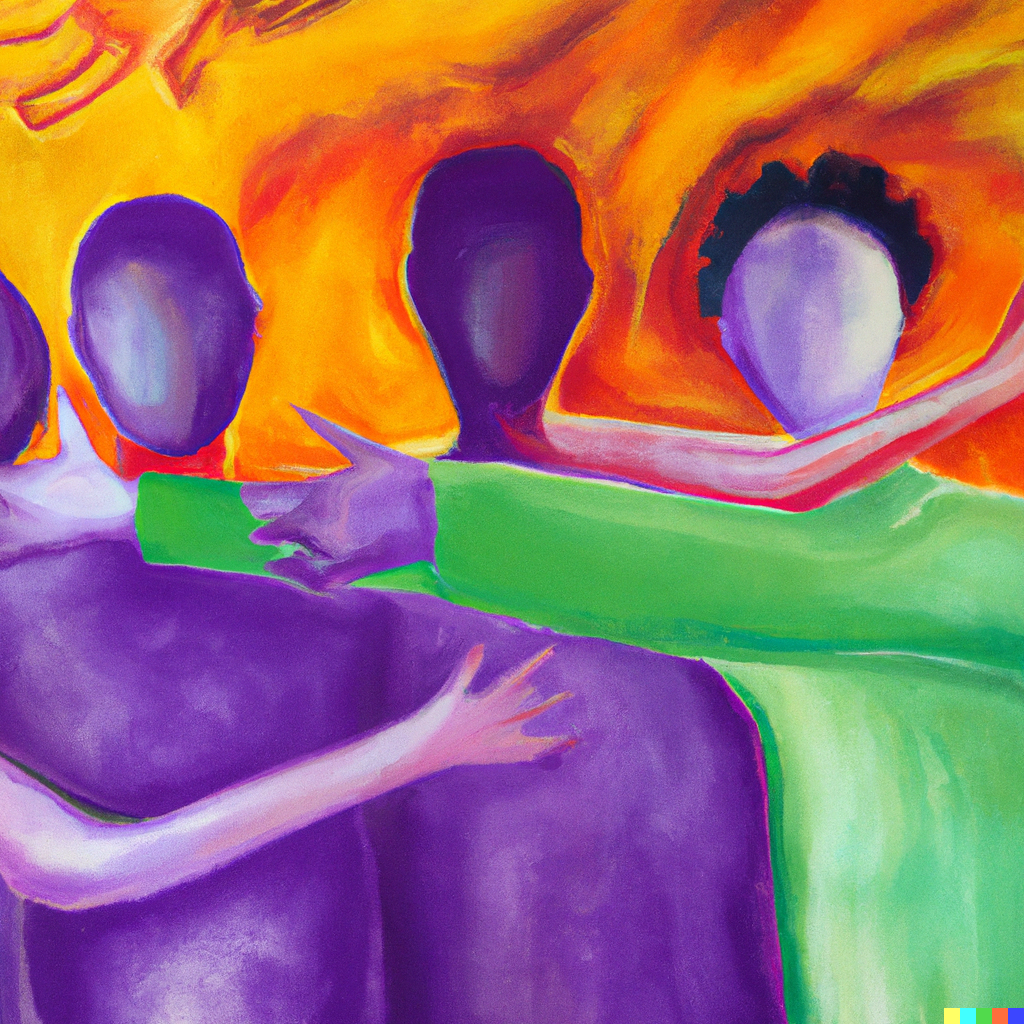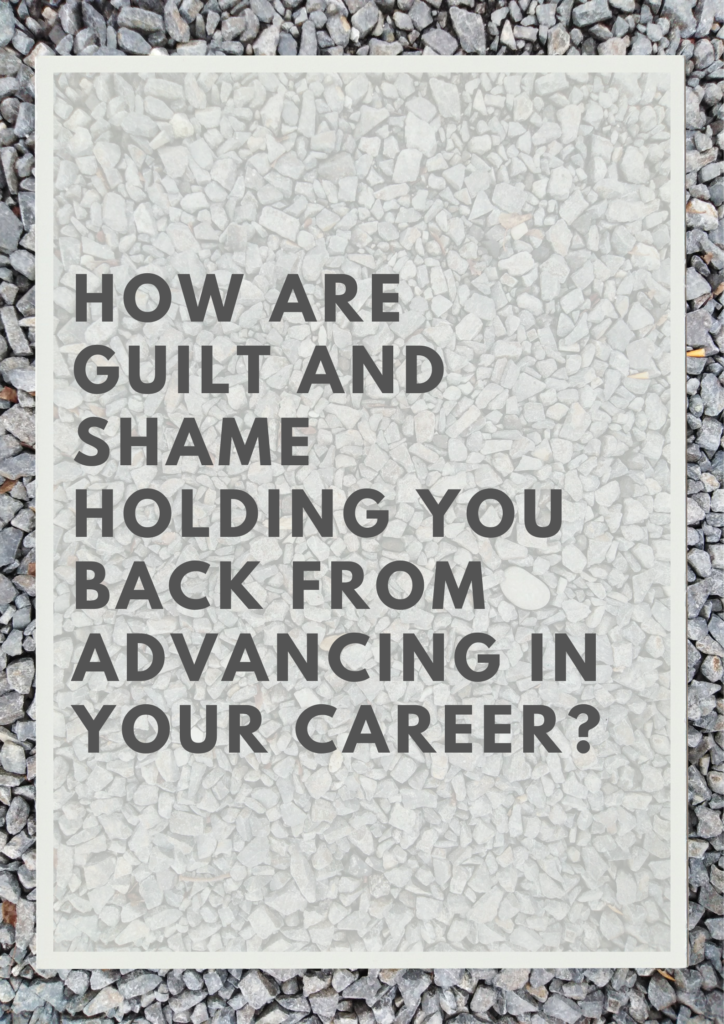As a child of emotionally immature parents or ACOA (adult children of alcoholics), you are used to living with a disproportionate amount of shame and guilt. As you take on responsibility for your parents or dysfunctional family members, you also take on guilt for things not going right. You start to feel ashamed of yourself because of your inability to successfully sort things out and save your family members.

Unfortunately, the pattern of over-responsibility and blaming yourself does not just fall away as soon as you move away from your family.
How this affects your business, if you are an ACOA and entrepreneur? How this affects your climbing up the career ladder, if you work for a corporation? How this affects your ability to work in a team?
This is the post in the series What I wish sooner as an adult child? In the intro post I shared characteristics of adult children and in the previous post I shared how I for a long time felt guilty for my father’s death. In this post I will share how the guilt and shame we are feeling over the things we had no control over as children still affects us today in the workplace.
What I wish I knew sooner as an adult child?
List of all the posts in the series:
- Intro: What I wish I knew sooner as an adult child?
- You are not the one to blame for your parent’s addiction, depression, illness, death…
- How are guilt and shame holding you back from advancing in your career?
- Facing the reality of being raised by emotionally immature parents: Why you don’t want to do it and why you need to.
- Top 3 Must Read Books, if you are ACOA (adult child of an alcoholic or you are coming from an otherwise dysfunctional family)
I will share with you different ways how the shame and guilt are preventing you from expressing your genius in your business or at work. These are the examples of the things I observed with myself and/or other ACOA. Not all of those examples may apply to you.
1. You are doing too much for your customers/clients and not charging accordingly.
You try to do all that you can to make them happy (as you were trying with your family members). While doing your best to meet customer’s needs and going an extra mile when necessary (and when you feel inspired to do so!) is a good business practice to have returning customers who also refer to you new customers, there is a high chance if you are ACOA, that you are doing too much for them, which can cause you to burn out.
Example: In my first business, I tried my best to deliver the goods to my customers as soon as possible. If they ordered a product on Monday, I tried my best to ship it on Tuesday and sometimes even in the same day. This resulted in me being in a hurry to come to the post office at the right time, spending way too much time waiting in the line and wasting my own time and money to deliver the goods asap.
What could I do differently? I could choose one day in the week to send packages. I could create “next day delivery” option that costs extra for those who cannot wait.
I was giving premium service to everyone without charging any extra for it. And I am completely sure that most of my customers would be completely okay with waiting a few days or a week for me to fulfil an order on handmade goods.
Question for you: Where are you doing more than it is necessary, because you want to make someone happy with you and your service? Are you sure this is something your customer/client even wants?
2. You are overthinking your interactions with your customers, clients, co-workers, business partners, employees, team members
Which can often leave you in analysis paralysis, self-doubt and inaction.
⇾ You spend way too much time writing emails or social media posts, because you are afraid of saying something wrong, you over-explain your situation.
⇾ You sometimes don’t express at all what bothers you, because you are afraid of people feeling hurt or getting angry.
⇾ You try to stuff down things you don’t express, and the feelings related to them start growing out of proportions, which then makes you afraid of expressing things even more, because you are afraid they will blow up.
⇾ Instead of doing something new, that you know is the right thing to do, you are imagining all the negative reactions and then don’t feel like doing the thing any more.
Question for you: What would it look like if you were more direct in your communication? With whom it feels most safe to start practising?

3. When someone in a team makes a mistake, you feel responsible for it.
⇾ You feel like you should have prevented the mistake.
⇾ If they don’t do the work that was assigned to them, you feel like it is on you to help them do it or to do the work instead of them, so that the team can continue working on the goal.
⇾ You might feel the shame instead of them (as you were taking on the shame for the out of line behaviour of your family members).
⇾ You are looking for excuses why they did what they did, and you try to understand their situation, even when it creates extra unpaid work for you.
⇾ You are afraid of speaking up and share your view of the situation, because you are afraid of others blaming you for the mistake.
⇾ You sense there is something off about the relationship dynamic, but feel confused about and overwhelmed by the conflicting feelings. You feel strange when explaining the situation to someone else, because it sounds crazy to you as well. You fear that you might be the crazy one, causing the situation in some way.
Personal example: I worked on a project where we worked on a common goal in smaller teams. I felt responsible to the larger group of people working on the project, that our team delivers on our duties. When people wrote to me that my team member (still) didn’t deliver what he promised, I did his work and send it over. I was trying to excuse him in my mind with “He has a child he needs to take care of, and I don’t have that responsibility, so I can do the extra work. I felt a mix of emotions, from anger, feeling stupid for doing the extra work, responsibility to the project and shame, because our team didn’t communicate effectively. I felt like if I share my feelings about this person to a bigger group, I am going to be seen as a snitch and as if I am the one who is making the drama.
I was bringing to the situation unresolved feelings from my family, I felt like if I express what is wrong, someone will blame me for the situation. So I pushed down my anger and feelings of being exploited and got back to work.
What would I do differently now?
⇾ I would keep on reminding myself that those people are not my family and that I can shift the dynamic by taking different action
⇾ I would share my experience with this person with a project manager and would let the project manager know about the extra unpaid work that I am doing.
⇾ I would share my situation with friends and study group I was part of to normalize it, get useful advice and not feel so alone in it.
⇾ I would seek professional help for myself, to help me embrace my feelings, especially anger.
Question for you: Where are you blaming yourself for inappropriate behaviour of other people?

4. You are staying in situations, where you are not appreciated for your contribution, nor seen for who you really are.
⇾ You keep hustling and grinding for the boss that is never happy with your contribution and who finds ways to belittle you.
⇾ You keep going for drinks with your co-workers, even when you are bored in their company. You don’t want to be seen as weird or as though you are thinking you are better than they are.
⇾ You are staying loyal to a boss or a client, that you have been through a lot, even when the relationship is actually draining you and is clearly to everyone else that they are exploiting you.
⇾ In personal relationships, you’re maybe hanging out with people that drain you (or you drain yourself by trying to please them and make things right in their eyes, so they would approve of you).
My example: Years ago, I remember talking with employees where I volunteer how satisfied they are in a team, and they said, that if you work with people who don’t appreciate you, it is better to go elsewhere. It was like heaven opened, and those words were directly for me. But to me, they seemed to be almost too good to be true. I mean, really? You could just go away from where you are not appreciated and find places where you are? Wouldn’t I be a crybaby, if I went away from the project I committed to, just because I didn’t feel appreciated? Most of the people I knew worked at jobs where they were underappreciated, isn’t it unrealistic to think you could be appreciated and paid for your work and what you bring?
I am still sometimes struggling with this, even though now life proved me again and again, that when you let go of what is not aligned for you, when you let go of people that doesn’t appreciate you, you make space for people who do. Or space to have more fun on your own, focusing on your projects.
Sometimes it doesn’t even mean that there is something wrong with you or people you don’t click with it. Sometimes we are just not a fit with some people. In any way, life is too short to waste time with people who don’t appreciate you.
Questions for you: In which relationships do you feel like you just never do it right, no matter how hard you try? And in which relationships you feel like you can just be you, and it all flows perfectly? Which relationships are in between? Which ones you want to keep, which ones do you still want to work on, and which ones you are willing to let go of?

5. You are afraid of asking for what you want and need
⇾ You are afraid people will be angry at you for having needs. What if they call you greedy, demanding, hard to please etc.? What if they say you don’t deserve it?
⇾ You feel like you should figure it out by yourself and not bother others with your questions.
⇾ You feel like other people’s time is more important than your own.
⇾ You try to help them eliminate their load of work, contribute to them as much as you can, before you ask them for something you really need.
⇾ You find ways to belittle yourself, so that you don’t have to ask for what you need and want. There is always something why you are not enough yet.
You live in a cycle in which you feel responsible for others and trying all your best to help them, save them, prevent bad things from happening. Because things still happen and people do things that harm themselves and/or others, you feel like you failed. Which makes you feel shame and guilt, you might also feel worthless. Because of those feelings, you are closing yourself from the world. You can even feel like you are causing harm with your mere presence. Which makes you feel like you must do the very best you can, do something exceptional, something that will really benefit people, help them, so that you can atone yourself for all the harm you are causing with your existence. And the cycle repeats. This shows up in your personal and work life, because relationships are everywhere.
What can we do differently?
⇾ Experiment with putting yourself first. Keep on repeating to yourself that you are not a less worthy human being and that you deserve to live well, just as everybody else.
⇾ Keep on asking yourself, “What do I want?”
⇾ Release religious and spiritual programming that says we should be “selfless.”
⇾ Embrace your ego.
⇾ Work with your inner child.
⇾ Tell people what you want.
Questions for you: What do you want? Keep asking this question and answering it.
6. You don’t state your boundaries.
You sometimes don’t even know where you stand, because of all the emotional turmoil and the mental fog it is causing.
⇾ You are becoming afraid of people and of their next demands on you
⇾ You become really anxious when you see your boss calling, as you know you will get extra work, and you won’t be able to say no.
⇾ At moments you feel like everybody out there is trying to get you, get something out of you, use you.
⇾ You start to distrust people.
⇾ You start to distrust yourself and your intuition for people.
⇾ It’s hard for you to distinguish what comes from your intuition and what is your trauma response.
⇾ You fear interactions with people and avoid them, because you are afraid you will not be able to stand your ground with them.
⇾ If you state your boundaries, you feel guilty afterwards and have emotional drama for hours, days, or sometimes even longer, despite knowing you did the right thing.
Gosh, I spent so much of my life feeling guilty for even trying to stand up for myself when someone crossed my boundaries.
What can we do differently?
⇾ Keep on asking yourself, “Who am I?” and “What do I want?”
⇾ Create your “policies”.
⇾ Mother yourself, your inner child and whenever necessary, be a mama bear for yourself.
⇾ Get to know your own anger, become friends with it.
⇾ Work with a therapist.
Question for you: What really pisses you off? Write about it, put it all on paper.

7. You hold back your true genius, your true contribution.
⇾ Because of all the shame, guilty and unworthiness, you feel like your ideas are probably stupid anyway.
⇾ You feel like people don’t take you seriously.
⇾ If you have a great idea, and you know it, you feel like people are not going to listen to it because it is coming from you.
⇾ You might hold back your best out of revenge for not being appreciated.
⇾ You have great ideas in your head, but don’t feel confident enough to share them.
⇾ Sometimes you feel invisible. It also happens to you that you say something and nobody hears it, but when someone else says the same thing, they get recognition and praise for it.
⇾ You feel confused, because you know deep down you are smart and have great ideas, but people are treating you like you are a bit retarded.
I held myself back from expressing my ideas and passion so many times. This is something I have to continuously remind myself of, that my point of view isn’t less valuable, because I don’t have ____ or because I come from ____.
What can you do differently?
⇾ Get in the groups of people with similar interest that you have.
⇾ Research the web, find people who are doing similar things and positively compare yourself.
⇾ Get a coach.
Question for you: Who do you admire (or envy)? What do you have in common with them?
*
It is obvious that if you find yourself even in some of these points, this impacts how you feel about your work, how much income you generate and how satisfied you are with your relationships.
Sometimes we avoid doing the work around this, because so many emotions come up. And in the next post I will write about those.
And if you want to read more about how being an adult child affects you in a workplace, I recommend reading Self-Sabotage Syndrome: Adult Children in the Workplace by Janet G. Woititz. (If you sign up to Scribd via my refferal link, you can read all the books you want for free for 60 days, Self-Sabotage Syndrome included, cancel anytime.).


